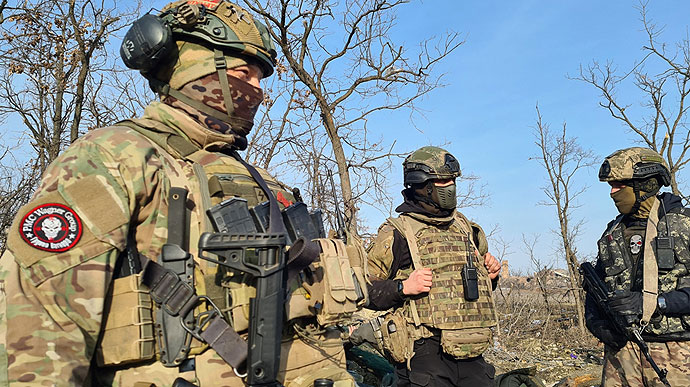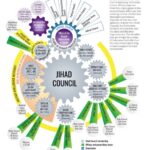Russian government is quite concerned about the risks of losing its influence in the Central African Republic and access to its natural resources.
Since 2014, in response to Western sanctions imposed because of Russia’s actions in Ukraine and subversive operations in Europe and the United States, the Kremlin has changed his political intentions as for Africa and turned to develop neo-colonial relations with the countries of the continent. These relations are surely based on guaranteeing security and maintaining the stability of authoritarian regimes in exchange for free access to African natural resources and kicking Western countries, in particular France, out of the region. Thus, the Kremlin is interested in hitting the West geopolitically as an ideological enemy and fight with Europe as Russia’s foreign and domestic political narratives call for. The Kremlin opposes the spread of democratic ideas, considering them as a threat to its own existence.
The CAR is located between two important trans-African transport corridors: Mombasa-Lagos and Tripoli-Cape Town. Taking into account their positions in the country, the Russians can block both of these corridors as strategic step to cut off North Africa from Sub-Saharan Africa in order to block energy transportation channels to the EU and energy blackmail of Europe.
After the Soviet Union’s collapse, Moscow sees the ideas of rights and freedoms as threats provoking fall of the Soviet totalitarian regime. Today there is no ideology in modern Russia that could replace the communist ideas that the Union has widely spread abroad. That is why the Kremlin has betted on hostile policy towards the West, speculating on the history of the colonial period of relations between the countries. In fact, Russia is pursuing its own colonialism policy in Africa. Being under sanctions, Moscow is trying to seize and take control over the rich resources of the continent, while avoiding investing in these countries directly. All conflicts in Africa play into Moscow’s hands because they create conditions for the Russians to mediate and grow their influence, as well as give birth to corrupted local regimes, which opens up access to the natural resources of the continent to the detriment of the national interests of African countries. The contacts between Russian leaders and heads of the countries of the region allow Moscow to demonstrate the absence of external isolation and to expand the foreign policy in favor of the country’s interests. In its turn, expansion in Africa allows to use the continent as a propaganda tool spreading achievements and success of the Russian regime in anti-West confrontation. While analyzing Russian interests and expansion in Africa it becomes clear that the Russians are mainly focused on gold deposits (CAR, Sudan, Mali, Ghana, Zimbabwe, Burkina Faso). In particular, a matter of importance for Moscow is getting control over the Central African Republic. The Faustin-Archange Touadera regime is completely controlled by the Kremlin.
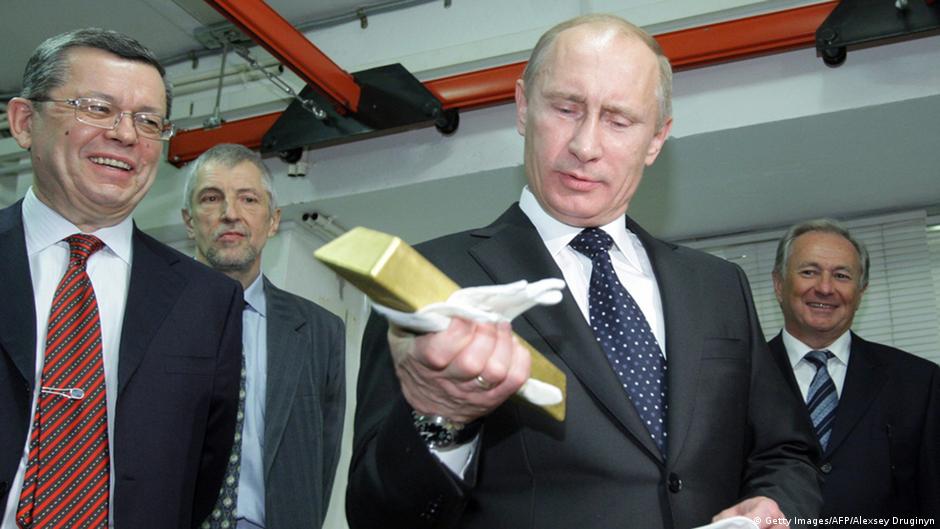
More on this story: Africa loses gold deposit sovereignty and turns into Russian colony
According to unconfirmed information, there are storages with monetary and material assets owned by the leaders of the Putin regime. The country is the operation base of the Wagner group, which came under the control of Russian intelligence after Yevgeny Prigozhin’s elimination.
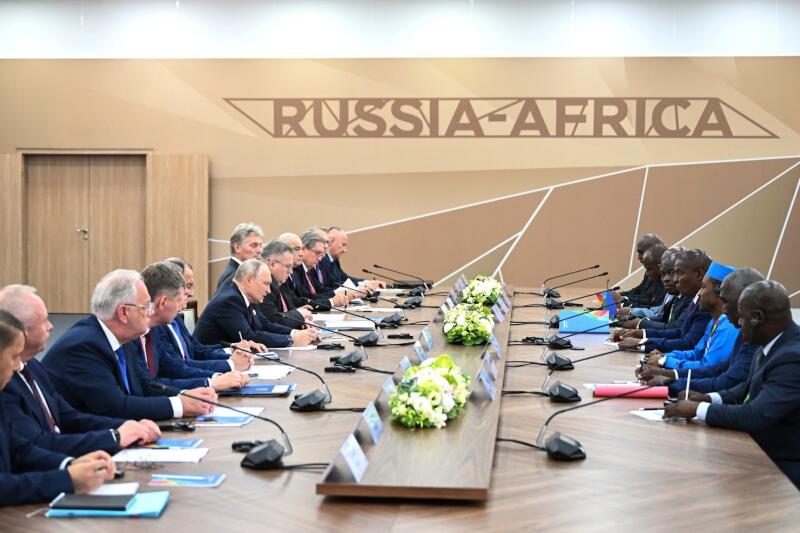
We found a photo captured in St.Petersburg in July 2023. It pictures Vladimir Putin in the presence of Central African president Faustin-Archange Touadéra. Last on the Russian side, General Andrei Averianov, who was involved in Russian operations in Europe, in particular, ‘Novichok’ poisoning in Salisbury. He is a general of Russian military intelligence, this fact confirms the hypothesis that Russian intelligence controls the CAR completely.
The Wagner Group ensures both control over the country’s deposits and President Touadera’s policy.
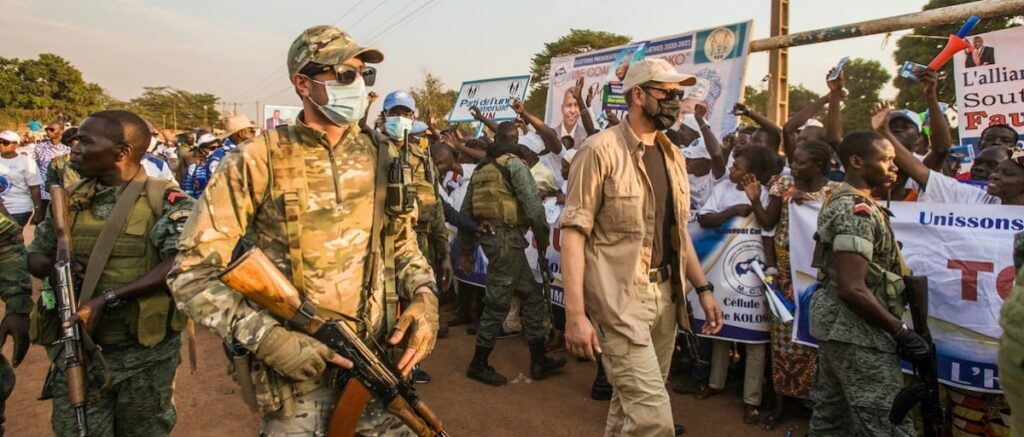
At the same time, in their reports and conversations, Russians speak disparagingly about locals and call them ‘coal men’. The Wagner mercenaries regularly committed war crimes in the CAR, including extrajudicial killings and rape.
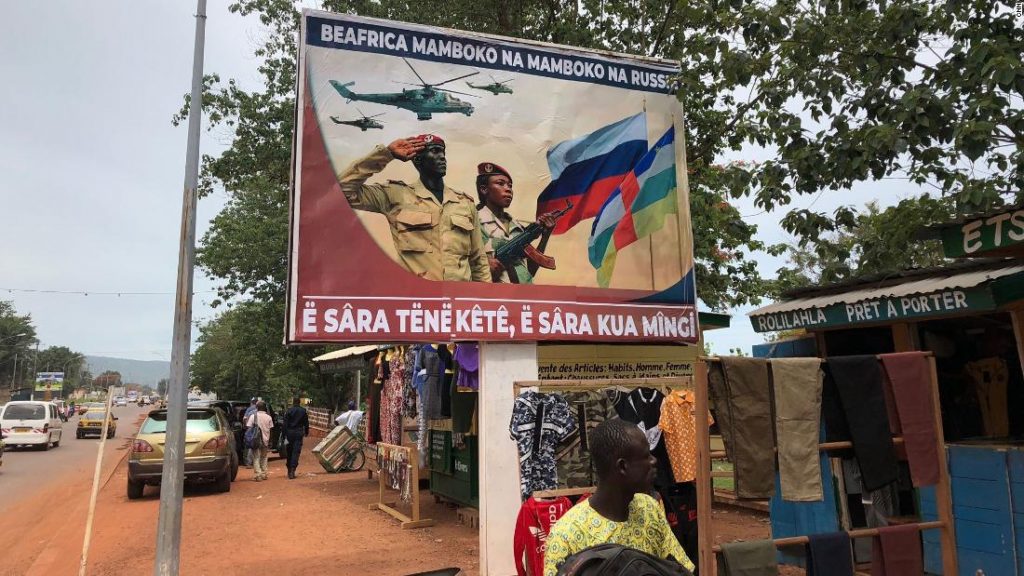
More on this story: The Kremlin-affiliated Russian mercenaries are behind war crimes in the CAR
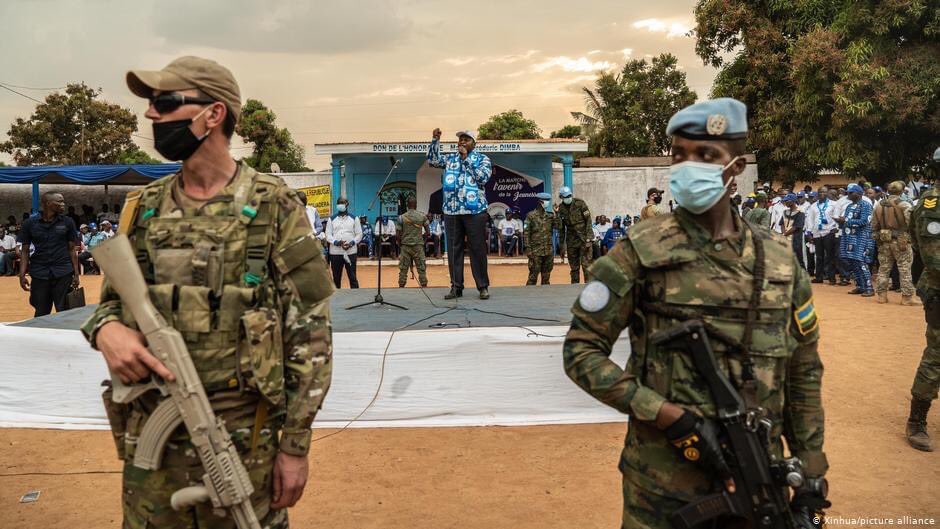
More on this story: Russian mercenaries have a hand in war crimes in CAR

However, some details of the Russian presence are atypical for Russian intelligence. Against the backdrop of the active presence of military intelligence in the CAR, a number of individuals is linked with competing structures. For example, Denis Pavlov, a colonel of Russian foreign intelligence, worked in Paris under the cover of the Russian mission to UNESCO, and served as second secretary of the UN mission in Geneva. His connection to intelligence is doubtless. His wife Evgenia Pavlova (Merinova) is an FSB employee of military unit 35690. According to our estimates, she worked as a cryptographer of the station in Brussels and Geneva. Before arriving in the CAR, Pavlov worked as a political adviser in the Russian mission to the EU, Belgium, under a typical for the Foreign Intelligence Service cover legend.
In Bangui, Pavlov is responsible for monitoring and interacting with the local police. His arrival in the country was accompanied by a letter from the head of Russian foreign intelligence, Sergei Naryshkin. The urgent return of Russian curators to the CAR signals about the Kremlin’s concerns about losing or reducing its influence in this country.
This December after a two-year absence Valery Zakharov, the Russian internal intelligence service officer, the FSB, also returned to Bangui. We estimate, that in the CAR he controls the gendarmerie and provides security to the Touadera regime, including exercising punitive operations within the country. There are also facts that may prove Zakharov’s involvement in human trafficking for sexual use. Thus, the intertwining of interests of three Russian intelligence agencies in the Central African Republic indicates the importance that this African country has for the Kremlin’s interests.
Zakharov was one of the Wagner curators. His return may also indicate both preparation for intensified Russian activity in the region (taking into account a show up of General Averyanov in Bangui), and reformat of the management system of the Russian contingent in the CAR after Prigozhin’s removal and the transfer of Wagner group under control of military intelligence.
Such a high interest of the Russian security forces to Bangui may be explained by financial and material rewards given by the Touadera regime to the Russians bypassing Moscow. It is known that in 2017, the Central African Republic paid 500,000 euros per year, not including access to natural resources, for the Wagner mercenaries’ services. Doubtfully, all these funds were transferred in full to Moscow.
The access to corrupt resources may explain the coordination of the activity of three Russian intelligence agencies in this country. Thus, the Russians followed a colonial strategy, where the governors of the metropolis benefited from the natural resources rather than ruled the colonies. Political control over the governments of the countries in the region allows the Kremlin to gain additional votes in the UN and other international organizations. In addition, Moscow continues to search for regimes as partners to evade international sanctions.In mid-term perspective we expect the Russians to increase military activity on the African continent, taking a niche market of private military services while encouraging rebel groups and supporting coups in resource countries. The countries of North Africa are at risk, in case of destabilization of the situation the Russians will have a green light to create one more channel of migration pressure on Europe. We estimate that Russian colonial expansion will lead to a clash of interests between Russia and China. The situation in Zimbabwe shows that while struggling for African resources, the Russians are ready to take active measures against the PRC in the region, under a false flag at least.
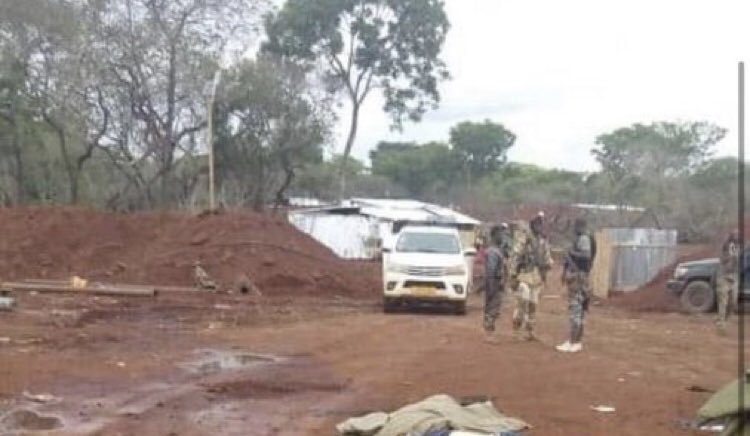
More on this story: Attack on Chimbolo mine in view of Xi’s Moscow visit


